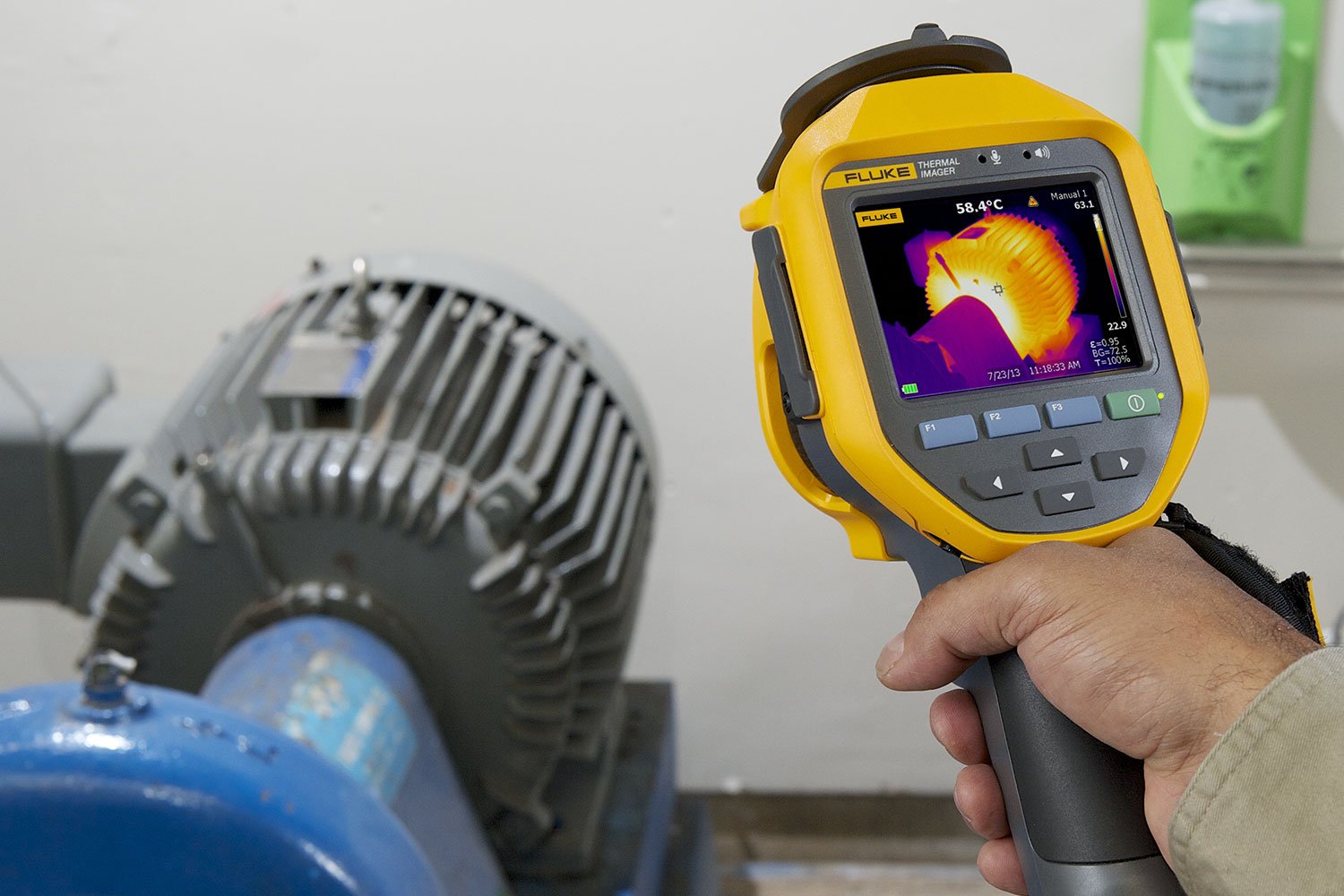
Infrared cameras, also called thermal cameras, are handy for inspecting motors because you can see what’s going on while the motor is running. Seeing a motor’s heat signature under normal operating conditions—with at least 40 % of design load—can tell you a lot about its condition. If you have to inspect a motor in a low load situation, keep an eye on even minor problems, because as the load increases, the temperature will increase, and if there’s a problem, those small temperature differences will be magnified.
Where to look and what to look for
- Scan the outside of the motor housing. If you see hot spots, or if the overall housing is a lot hotter than normal, you’ll need to take a closer look.
- Check the convection cooling fan (if present) to make sure it’s running.
- Look at the windings. A localized hot spot could mean the windings are burning out due excessive heat from transients or harmonics on the line.
- Pop off the termination box cover and scan the connections. Too loose or too tight connections, or broken strands on the lines can cause high resistance that will dissipate some of your electrical energy into heat.
- Check bearing temperature. If they’re measuring 5°C to 10°C hotter than the motor housing you may have a misalignment problem or a bearing that’s worn or over- or under-lubricated.
Carefully scan couplings and drive shafts
These components are usually shiny metal that can cause your infrared camera to read reflections and could appear hotter or colder than they are. Various workarounds exist to help mitigate this problem. These are discussed in other articles and in training courses.
If you build a thermal image archive of your critical motors over time, it will be a lot easier to tell whether a hot spot is a problem or not. If a motor is repaired, be sure to use your thermal imager afterwards to verify that those repairs were successful and create a new baseline.